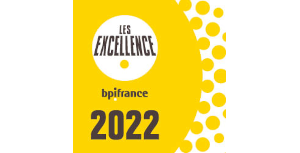The decision UPC_CFI_ 216/2023 provides insight into the grounds for ruling on a request for an order to produce evidence (Rule 190 RdP) concerning FRAND (Fair, Reasonable, And Non-Discriminatory) license agreements concluded between the plaintiff and third parties.
In this specific case, the plaintiff is the holder of various patents deemed essential to 3G and 4G cellular standards. As such, the plaintiff has entered into several FRAND license agreements with third parties.
The defendants, who are alleged infringers of the plaintiff’s essential patents, argue that they could not accept the plaintiff’s license proposals as they do not meet FRAND criteria. Therefore, the defendants filed a request for an order to produce evidence under Rule 190 RdP, targeting, among other things, all the license agreements the plaintiff has concluded with third parties concerning their patents declared essential to 3G and 4G standards.
In this ruling, the Mannheim local division largely bases its decision on the case law established by the Court of Justice of the European Union (CJEU) concerning commercial practices applied to FRAND licenses.
The local division first recalls that, due to the obligations of a patent holder for a standard-essential patent under EU competition law, the holder is required, according to CJEU case law, to submit a specific written license offer under FRAND terms, particularly specifying the amount of royalties and the calculation method (CJEU Huawei v. ZTE, ECLI:EU:C:2015:817 para. 63). However, this obligation only arises if the alleged infringer has previously expressed their intention to conclude a license agreement under FRAND terms (CJEU loc. cit.).
The local division draws two conclusions for the present case:
1. An order for evidence production may be inappropriate if the alleged infringers are judged as unwilling to conclude a license agreement from the outset. In such a case, it would be unclear why the infringers should access the patent holder's licensing practices.
2. The scope of an order for evidence production must be determined considering the transparency obligation of essential patent holders in negotiations, as established by the CJEU. Specifically, when explaining the license royalty calculation method required by the CJEU, simply providing the underlying mathematical factors is insufficient. Instead, the ratio referenced by the CJEU must be made transparent regarding why the essential patent holder believes their offer to the alleged infringers meets FRAND conditions. The necessary justification can be provided, for instance, by referring to an established market licensing practice in the form of a standard licensing program. If such a program does not exist, specific individual license agreements may serve as a reference if the patent holder explains why these agreements are an appropriate point of comparison for the alleged infringer.
In the present case, the local division recalls that during negotiations, the plaintiff primarily referenced two license contracts, which were submitted as part of the proceedings. The defendants also referenced two contracts they submitted. However, the defendants have not sufficiently demonstrated that there is at least a concrete presumption that the plaintiff has indeed concluded other contracts with third parties that could serve as a basis for an amicable settlement.
The local division concludes that it does not appear necessary, given the transparency obligation arising from EU law, to order the presentation of all anonymous license agreements related to the plaintiff’s 3G and/or 4G portfolio.
Additionally, the principle of proportionality and the need to consider the interests of third parties, who, as contractual partners of the license agreements, may also have interests in protecting trade secrets, must be taken into account when deciding on the production order.
The local division also refers to the "recognized commercial practices" in the field, which the CJEU has also placed at the core of its negotiation program. In particular, in the context of negotiating a FRAND license, parties must limit themselves to a manageable number of license agreements during negotiations. Otherwise, the negotiations would be overloaded with a volume of facts that would prevent commercial negotiations from progressing in a timely manner.
In this case, the local division notes that there is insufficient evidence that the plaintiff holds other license agreements that the parties could effectively use to conclude a FRAND license. Indeed, it is primarily up to the plaintiff to decide whether to submit license contracts during the proceedings to counter any potential FRAND objections raised by the defendants and to demonstrate compliance with EU law. Legal consequences could only arise if it were proven, for example, during the proceedings, that an essential patent holder deliberately withheld certain license agreements to impose excessive licenses, taking advantage of its monopoly position.
Therefore, at least for the above reasons linked to EU law applied to FRAND licenses, the Mannheim local division rejects the defendants’ request for an order for evidence production under Rule 190 RdP.













